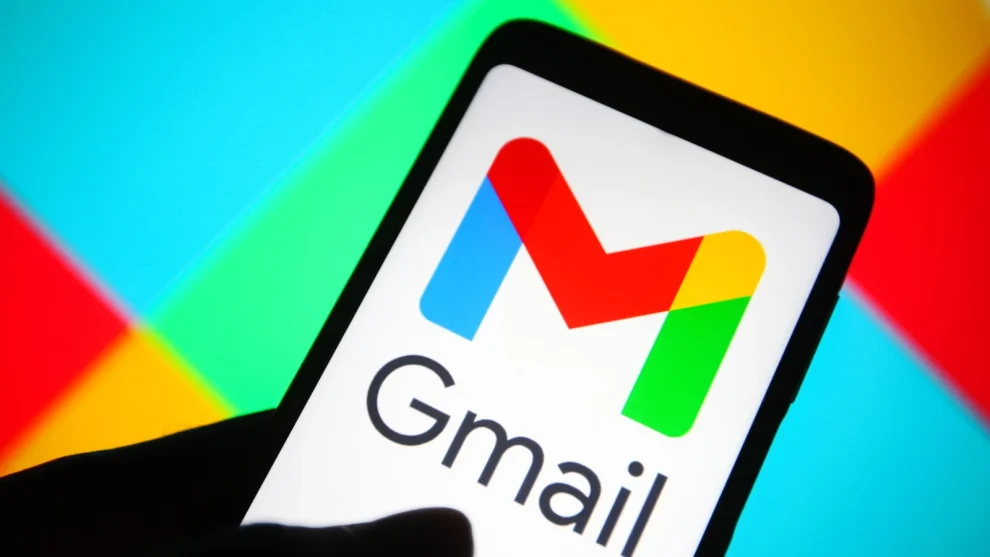Google has issued an urgent security alert for its 2.5 billion Gmail users worldwide. The tech giant has confirmed the existence of a sophisticated artificial intelligence (AI) hack targeting its email service, potentially putting millions of users’ sensitive information at risk. This unprecedented cyber threat leverages advanced AI technologies to bypass traditional security measures, marking a new era in the ongoing battle between cybersecurity experts and malicious actors.
The AI Hack: A New Frontier in Cyber Threats
The recently discovered AI hack represents a quantum leap in the complexity and potency of cyber attacks. Unlike conventional hacking methods that rely on brute force or known vulnerabilities, this new threat utilizes machine learning algorithms and natural language processing to create highly personalized and convincing phishing emails that are nearly indistinguishable from legitimate communications.
How the AI Hack Works
- Data Harvesting: The AI system begins by scraping vast amounts of publicly available data from social media platforms, professional networks, and other online sources to build comprehensive profiles of potential targets.
- Language Model Training: Using advanced natural language processing techniques, the AI is trained on the writing styles, common phrases, and typical content of legitimate emails from various organizations and individuals.
- Personalized Phishing Content Generation: The AI generates highly customized phishing emails tailored to each recipient, incorporating personal details, professional jargon, and timely context to maximize credibility.
- Adaptive Tactics: The system continuously learns from successful and unsuccessful attempts, refining its approach in real-time to improve its success rate.
- Bypass of Traditional Filters: By mimicking legitimate email patterns and adapting to security measures, these AI-generated emails often slip through conventional spam and phishing filters.
The Scale of the Threat

The potential impact of this AI hack is staggering, given Gmail’s massive user base of 2.5 billion. Google’s internal investigations have revealed that the hack has been active for several months, operating under the radar due to its sophisticated nature. While the exact number of compromised accounts remains undisclosed, preliminary estimates suggest that millions of users may have been exposed to these AI-generated phishing attempts.
Key Findings from Google’s Investigation
- The AI hack has targeted users across various demographics, with a particular focus on high-value targets such as corporate executives, government officials, and individuals with significant online presence.
- The success rate of these AI-generated phishing emails is estimated to be significantly higher than traditional phishing attempts, with some reports suggesting a tenfold increase in effectiveness.
- The hack has been linked to a series of data breaches and financial frauds reported over the past quarter, although the full extent of the damage is still being assessed.
The Technological Marvel Behind the Threat
The AI system powering this hack is believed to be built on cutting-edge machine learning technologies, possibly including advanced versions of language models similar to GPT (Generative Pre-trained Transformer) architectures. Cybersecurity experts are marveling at the technological sophistication of the attack, which represents a significant leap forward in the capabilities of malicious AI applications.
Key Technological Components
- Natural Language Generation (NLG): The AI employs state-of-the-art NLG techniques to create human-like text that matches the style and tone of legitimate emails.
- Contextual Understanding: Advanced algorithms allow the system to incorporate relevant current events, industry-specific information, and personal details into the generated content.
- Emotional Intelligence Simulation: The AI is capable of crafting messages that appeal to specific emotions or psychological triggers, increasing the likelihood of user engagement.
- Dynamic Content Adaptation: The system can generate and modify email content in real-time based on user interactions and emerging trends.
- Multi-lingual Capabilities: The AI hack has demonstrated proficiency in multiple languages, allowing it to target users globally with localized and culturally relevant content.
The Race Against Time: Google’s Response
In response to this unprecedented threat, Google has mobilized its cybersecurity teams and is working around the clock to counter the AI hack. The company has outlined a multi-pronged approach to address the immediate threat and strengthen its defenses against future AI-powered attacks.
Immediate Countermeasures
- Enhanced AI-based Filtering: Google is rapidly deploying advanced AI models trained to detect the subtle patterns of AI-generated phishing emails.
- User Alert System: A new alert system is being rolled out to notify users of potentially suspicious emails, with clear guidelines on how to report and handle such communications.
- Temporary Restrictions: Some advanced Gmail features may be temporarily limited to reduce the attack surface while permanent solutions are developed.
- Collaboration with Cybersecurity Firms: Google has partnered with leading cybersecurity companies to pool resources and expertise in combating this new threat.

Credit – Medium
Long-term Security Enhancements
- AI Ethics and Security Research: Google is investing heavily in research to develop ethical AI systems that can be used to enhance email security without compromising user privacy.
- Blockchain-based Authentication: The company is exploring the implementation of blockchain technology to create an immutable record of email origins and paths.
- Quantum-resistant Encryption: In anticipation of future quantum computing threats, Google is accelerating its development of quantum-resistant encryption methods for Gmail.
- User Education Initiatives: Comprehensive educational programs are being designed to help users identify and protect themselves against AI-generated phishing attempts.
The Broader Implications: A Paradigm Shift in Cybersecurity
The confirmation of this AI hack marks a turning point in the field of cybersecurity, with far-reaching implications for individuals, businesses, and governments worldwide.
Rethinking Email Security
The effectiveness of this AI-powered attack challenges the fundamental assumptions of email security. Traditional methods of detecting phishing attempts, such as looking for spelling errors or unusual sender addresses, are rendered largely ineffective against this new breed of sophisticated, AI-generated content.
The AI Arms Race
This incident has ignited what many experts are calling an “AI arms race” in the cybersecurity realm. As malicious actors leverage AI to create more convincing scams, cybersecurity professionals must develop equally advanced AI systems to detect and prevent these attacks.
Privacy Concerns
The ability of AI systems to collate and utilize vast amounts of personal data for targeted attacks raises significant privacy concerns. This may lead to calls for stricter regulations on data collection and usage, both by companies and potential bad actors.
Impact on Digital Communication
The rise of AI-powered phishing could potentially erode trust in digital communications, forcing individuals and organizations to rely more heavily on alternative, more secure forms of communication for sensitive information.
Legal and Ethical Considerations
The use of AI in cyberattacks presents new challenges for lawmakers and ethicists. Questions arise about liability, punishment, and prevention when the perpetrators are using autonomous or semi-autonomous systems to conduct their attacks.
Protecting Yourself: Expert Advice
While Google works on systemic solutions, cybersecurity experts emphasize the importance of individual vigilance. Here are some key recommendations for Gmail users:
- Enable Advanced Security Features: Turn on Google’s advanced protection program, which provides extra safeguards against targeted attacks.
- Use Multi-Factor Authentication: Implement strong, multi-factor authentication methods to add an extra layer of security to your account.
- Be Skeptical of Unexpected Emails: Even if an email appears to be from a known contact, be cautious about unexpected requests or links.
- Verify Through Alternative Channels: If you receive a suspicious request via email, verify it through another communication method like a phone call.
- Keep Software Updated: Ensure your operating system, browsers, and security software are always up to date.
- Educate Yourself: Stay informed about the latest phishing techniques and how to identify them.
- Use AI-powered Security Tools: Consider using email clients or add-ons that leverage AI to detect sophisticated phishing attempts.
The Road Ahead: Adapting to a New Reality
As the dust settles on this revelation, it’s clear that the cybersecurity landscape has been irrevocably altered. The Gmail AI hack serves as a wake-up call, not just for Google, but for the entire digital ecosystem.
A Call for Collaboration
The sophisticated nature of this threat underscores the need for unprecedented collaboration between tech companies, cybersecurity firms, and government agencies. Only through a united front can we hope to stay ahead of these evolving AI-powered threats.
Investing in AI Security Research
This incident highlights the dual nature of AI as both a powerful tool for cybersecurity and a potential weapon in the hands of malicious actors. Increased investment in AI security research is crucial to tilting this balance in favor of defense.
Reimagining Digital Literacy
As AI-generated content becomes increasingly prevalent and convincing, digital literacy must evolve. Education systems worldwide may need to incorporate advanced critical thinking skills specifically tailored to navigating an AI-saturated digital landscape.
Vigilance in the Age of AI
The confirmation of the AI hack targeting Gmail users marks a significant milestone in the evolution of cyber threats. It serves as a stark reminder of the double-edged nature of technological advancement – the same AI technologies that promise to revolutionize various aspects of our lives also have the potential to be weaponized against us.
As we stand on the brink of this new era in cybersecurity, the importance of individual vigilance cannot be overstated. While tech giants like Google work tirelessly to develop systemic defenses, each user must play an active role in protecting their digital lives.
The Gmail AI hack is not just a threat to email security; it’s a harbinger of the challenges we’ll face as AI becomes more deeply integrated into every aspect of our digital existence. By staying informed, adopting best practices, and remaining critically aware of our digital interactions, we can collectively rise to meet this new challenge.
In the end, our greatest defense against the rising tide of AI-powered cyber threats may well be our uniquely human qualities: skepticism, adaptability, and the capacity for critical thinking. As we navigate this brave new world of AI-enhanced cybersecurity, these skills will prove invaluable in safeguarding our digital futures.
















Add Comment